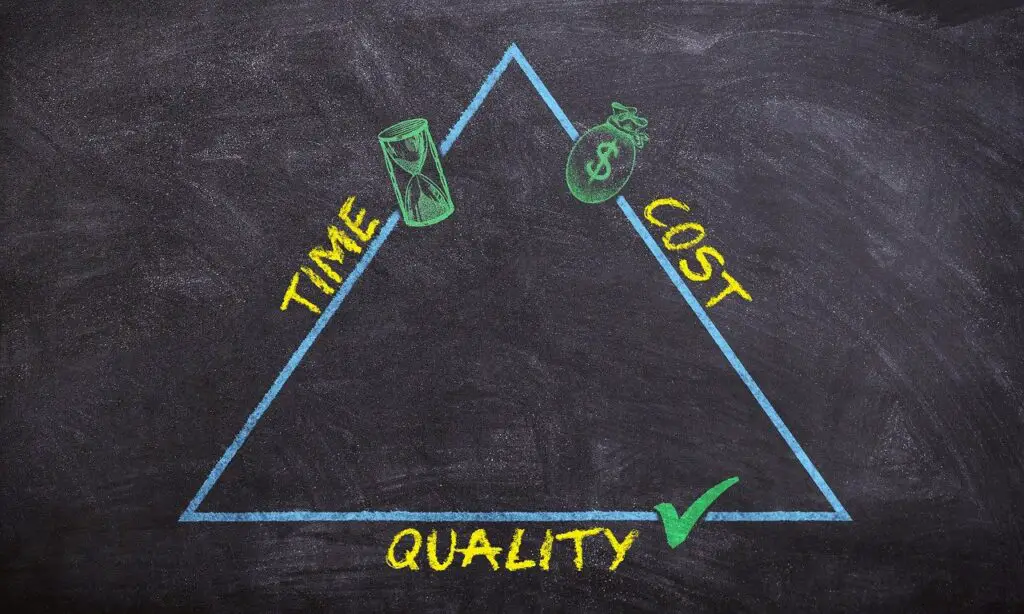If you’re thinking about becoming an English as a Foreign Language teacher, you’ve no doubt come across the two acronyms: TEFL and CELTA.
With so much talk online about both, it can be hard to figure out what they are. In this article I’m going to present the facts so you can clearly see the differences, and as a result choose which one might be best for you.
TEFL certificates are for people hoping to teach English as a Foreign Language. The CELTA qualification is a type of TEFL certificate which stands out as being highly valuable and respected. Compared to other TEFL certificates, the CELTA is more demanding and expensive.
Essentially, there are lots of different types of TEFL certificate, and the CELTA is just one of them. Many people consider it the best one.
Later on in the article, I’ll compare other TEFL certificates side by side with the CELTA, but first I want to clarify the difference in nomenclature.
What do they mean?
TEFL = Teaching English as a Foreign Language
TEFL is an industry and a career. Anyone who teaches English abroad is considered a TEFL practitioner, regardless of whether they’re certified or not.
However, the acronym is often used as shorthand for TEFL certificate – a qualification which most TEFL teachers need in order to get employed.
Similar terms are TESL (Teaching English as a Second Language) and TESOL (Teaching English to Speakers of Other Languages).

CELTA = Certificate in Teaching English to Speakers of Other Languages
Yes, I know, the letters in the acronym don’t match the words in the title, so it should really make CTESOL. It used to be called the Certificate in English Language Teaching to Adults, but they changed the title and kept the acronym, probably for brand recognition reasons.
Regardless of the name, it’s still a type of TEFL certificate. It’s not just any old TEFL certificate, though, instead it’s one of the most expensive and prestigious qualifications out there. In fact, it’s often mistakenly considered as separate from TEFL.
It’s provided by Cambridge English. Anyone who knows anything about TEFL is aware of the importance of the Cambridge English brand. The company produces quality resources and is responsible for a large amount of international English language exams for employment or university acceptance.
Comparison
Comparing TEFL certificates with the CELTA is like comparing “laptops” with “MacBooks”. There are hundreds of types of laptops from various manufacturers, of which Apple MacBooks are just one, albeit possibly the most famous.
There are hundreds of TEFL certificates available, and CELTA is the top brand.

That doesn’t mean we can’t compare them, it just means I have to get some caveats out of the way first.
- There’s a huge variety in the content and quality of TEFL certificates.
- Not all TEFL certificates have the same level of recognition and integrity.
- TEFL certificates have differ in importance depending on where you are in the world.
In general, there are two main types of TEFL certificate: 120-hour level 3 certificates, and 168+ hour level 5 certificates.
Level 3 certificates are the industry minimum. They’re considered equal in difficulty to most qualifications earned by high school students (A-levels, International Baccalaureate, and Advanced Placement tests).
Level 5 certificates are considered more advanced and in-depth. The level 5 rating puts them on the same difficulty rating as foundation degrees and the second year of a bachelor’s degree.
The CELTA is a Level 5 qualification. However, that does not mean it is equal to other level 5 TEFL certificates.
To find out more about all the different types of TEFL certificate, read my article What is the Best TEFL Certificate? Guide to choosing right.
Unfortunately, the level system is misleading. Just because the qualifications are considered to have the same difficulty, doesn’t mean they have the same value. And in fact, it doesn’t represent difficulty at all.
The second year of a degree in aeronautical engineering from MIT technically has the same difficulty rating as a level 5 TEFL. No offence to TEFL practitioners, but they’re not the same.
With that in mind, I’m going to compare the CELTA with both level 3 and level 5 TEFL certificates. Here’s a table which summarises the major factors at play.
| TEFL Level 3 | TEFL Level 5 | CELTA | |
|---|---|---|---|
| Cost | $300-400 (online) | $400-700 (online) | $1,000-3,000 |
| Online/in-person | Both | Both | Both |
| Teaching practice | Limited | Limited | 6-hours |
| Recognition | Most countries | Most countries | All countries |
| Employability | Medium | High | Very high |
Cost
One of the main differences between the CELTA and other TEFL qualifications is the cost.
CELTA courses typically cost between $1,000 and $3,000 for the full 4-week course, regardless of whether it’s online, in-person, or a mixture of the two.
TEFL certificates, on the other hand, are mostly cheaper. Since there are so many TEFL course providers, prices vary from $50 to as much as $2,000 for the same type of qualification.

Saying that, the best value online level 3 TEFL certificates come in at about $300-400. Plus, you can often get them at a discounted rate. Level 5 certificates are a little pricier, ranging from $400-700 (again, there are lots of deals available for cheaper).
If you want to get your TEFL certificate in person, it costs a lot more. Somewhere between $1,000 and $2,000 is about normal, considering you’ll get physical materials and an in-person tutor.
If you’re looking for great value TEFL certificates, I recommend International TEFL and TESOL Training. Click the link for 15% off all courses (I receive compensation, so you’re supporting me, too). Not convinced? Read why I’d choose ITTT over other TEFL course providers.
Duration & location
CELTA
Due to the global pandemic in 2020, Cambridge English made the CELTA available completely online. Previously, it was only possible to do it in-person, or partially online.
As of March 2022, you can still get your CELTA entirely online, although it remains to be seen whether they switch back to the previous model.
Doing the course full-time takes about 4-5 weeks. If you opt for the part-time course, it will take you anywhere between 2 months and a year.
Alternatively, you can do the class in-person, or even with a combination of online and in-person.

TEFL Certificates
Most people get their TEFL certificate online because it’s cheaper. There are options to do them in-person, but as mentioned earlier, these are more expensive (a similar price to the CELTA).
Some course providers have hybrid courses with the theory online and practical learning in-person.
The online courses can be done at your own pace, although some providers may place a 6-month or 1-year limit for completion. If you have lots of time on your hands, you can get them done in a month. In-person courses usually take about 4 weeks.
Course content
This is where things get difficult to compare. With the CELTA, you know what you’re getting – there’s a clear syllabus with concepts like language analysis; planning and resources; and developing teaching skills.
You get 6 hours of observed teaching practice (OTP) and there are four written assessments throughout. There’s no final exam. For more on what’s included, click this link to the Cambridge English page.

When it comes to the wealth of other TEFL courses, you won’t always get the same thing. Some providers focus on getting your grammar up to scratch while others have an emphasis on behaviour management techniques.
For me, a massive part of teacher training is genuine observed teaching practice. This is so important in gaining confidence and practical skills in the classroom. Most TEFL courses don’t offer this. And if they do, check it’s not peer-teaching, because that’s not the real thing.
There are two things you can be sure of:
- The CELTA has a balanced and relevant syllabus.
- The CELTA focuses more on teaching adults rather than young learners, although many of the concepts apply to all ages.
Beyond that, you’ll have to research each TEFL course provider individually and decide if their curriculum appeals to you.
For broad and balanced courses with observed teaching practice, I recommend International TEFL and TESOL Training. Click the link for 15% off all courses (I receive compensation, so you’re supporting me, too). Not convinced? Read why I’d choose ITTT over other TEFL course providers.
Quality
The CELTA has the highest quality course content. Cambridge English monitors and regulates each course provider with rigorous standards. Tutors and instructors must be highly qualified and experienced.
In contrast, TEFL course providers don’t have to be regulated. The best ones are endorsed by major educational institutions, so you know the quality reaches a certain standard, but there are many courses which don’t have good content at all.
To find out more about the dangers of low quality TEFL course providers, check out my article Is TEFL Legit? Guide to trustworthy certificates and jobs.
That’s not to say all TEFL courses are worse than the CELTA. The most reputable companies may offer very good quality instruction, but if you want to guarantee the best of the best, go with the CELTA.
Employability
There’s quite a lot of debate about whether the CELTA makes you more employable than a level 3 or level 5 TEFL certificate.
While it’s true the CELTA is recognised and respected around the world, in some places it doesn’t have the same impact as others.

It all depends on where you want to teach.
If you haven’t already decided where you want to teach English, I’ve written a helpful guide to choosing: How to Pick the Right TEFL Destination: 5 steps to success.
Here are some places where having a CELTA is beneficial:
- English-speaking countries (teaching ESL to people who have moved there as immigrants)
- Middle Eastern nations like Saudi Arabia and Qatar
- Certain countries in northern and western Europe, like France and Germany
In other places, having a CELTA may help you be a little more competitive than just having a standard TEFL certificate, but won’t really make that much of a difference. These include:
- Latin America
- Asia
- Southern and Eastern Europe (e.g. Spain, Italy and Poland)
- Africa
A CELTA allows you to get certain types of jobs you wouldn’t otherwise get. Some private schools may require a CELTA, and if you want to work for the British Council, a well-paid and reputable language academy with branches in many countries, you’ll need one, too.
To learn how much money you can earn in different countries around the world, head to my resource How Much Do TEFL & TESL Teachers Make? Countries compared. And learn if it’s hard to get a job as a TEFL teacher here: Is it Hard to Get a TEFL Job? Tips on finding employment.
However, for most language academies, a 120-hour level 3 TEFL certificate is fine.
In conclusion, yes, the CELTA does make you more employable. But in many situations, it doesn’t give you a significant advantage and may not be worth the time and money.
Which is best?
The answer to this depends on your ambitions as a TEFL teacher.
We’ve established that the CELTA is more expensive, more demanding and more respected than other TEFL certificates, both level 3 and level 5.

The CELTA is better for people who:
- Want to get a TEFL job in a more competitive country (Middle East, northern/western Europe, English-speaking countries)
- Intend to be a TEFL teacher for more than 2 years
- Want to get employed in private schools or high-paying language academies such as the British Council
- Don’t mind about the high upfront cost
- Can commit to a demanding course
A TEFL course is better for people who:
- Hope to work in Latin America, Asia, southern/eastern Europe, or Africa
- Don’t see TEFL as a long-term career
- Want to work in language academies
- Don’t want to spend a lot of money on a qualification
- Want to study at their own pace
Elsewhere online, there are people and websites which will tell you CELTA is better, and others will tell you how it’s a waste of time and that TEFL certificates are the best option. Often, these people have an agenda. They may be websites which sell one of the types of courses, so they’re biased.

I’m not going to say one is better than the other. I’ve just presented you with as many facts in the most balanced way possible, with the hope you can make your own informed decision.
If you go for a CELTA, Oxford TEFL is a good bet. They have online courses, both part-time and full-time, as well as in-person courses in Barcelona.
And if you think a normal TEFL certificate is for you, I can’t recommend ITTT highly enough. Read exactly why I chose to affiliate myself with them instead of other course providers here: Which TEFL Course Provider to Choose? Why my pick is ITTT.
Or go straight to their website for 15% off (affiliate link): International TEFL and TESOL Training
To learn more about becoming a TEFL teacher, you should definitely read my other articles:
Big Guide to Starting Out in TEFL: All you need to know
Is TEFL Teaching Hard? A guide to whether TEFL is right for you
What Are EFL/ESL Classes Like For Teachers?
Is TEFL Legit? Guide to trustworthy certificates and jobs
Do You Need a Degree to Work as a TEFL Teacher?
How to Pick the Right TEFL Destination: 5 steps to success
What Type of TEFL Teaching is For You? Jobs explained
What is the Best TEFL Certificate? Guide to choosing right
TEFL vs. CELTA: What’s the difference? Which is best?
10 Steps to Passing Your TEFL: Study and assignment tips
Is There an Exam for TEFL Courses? What you need to pass
Which TEFL Course Provider to Choose? Why my pick is ITTT
Is it Hard to Get a TEFL Job? Tips on finding employment







